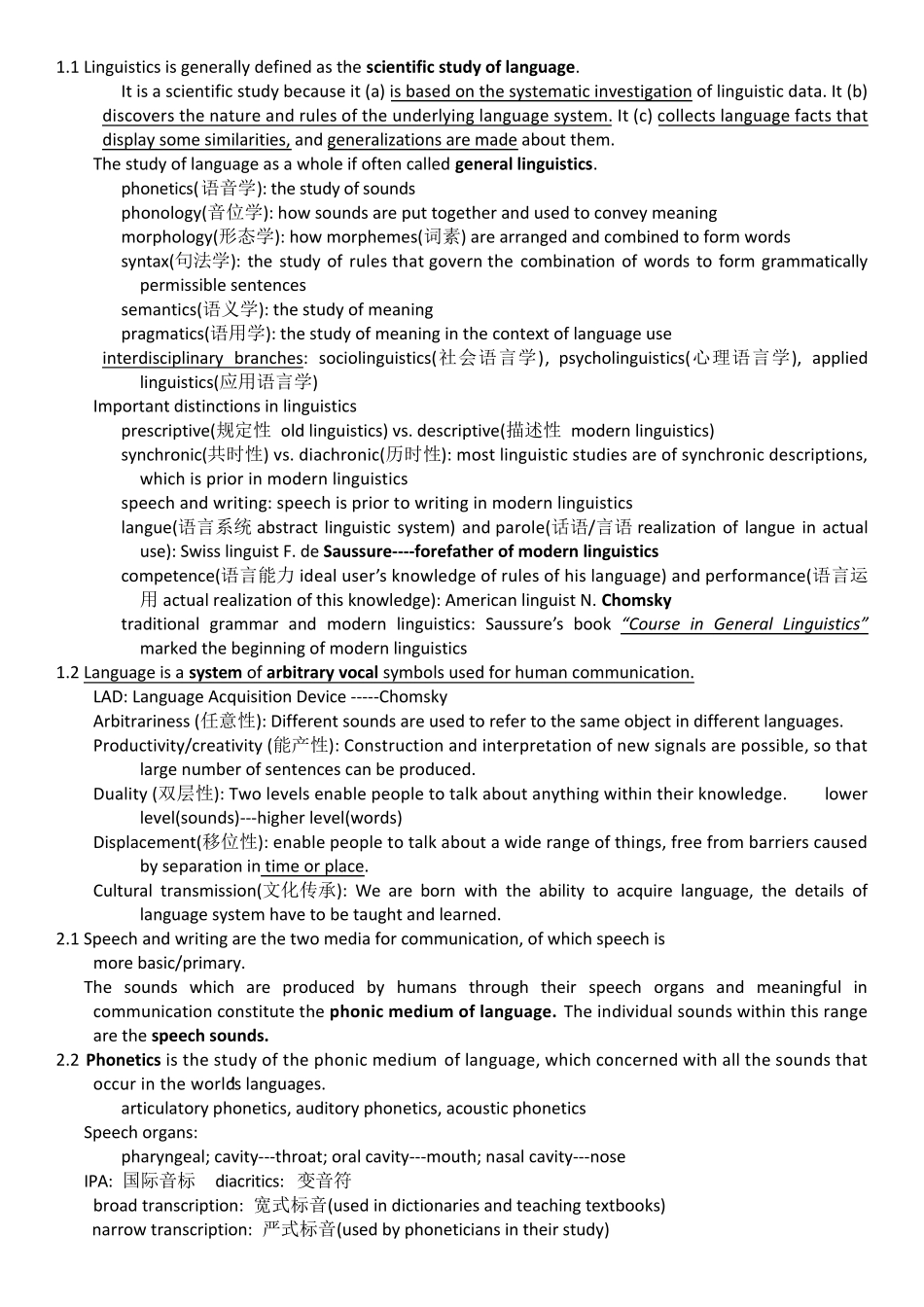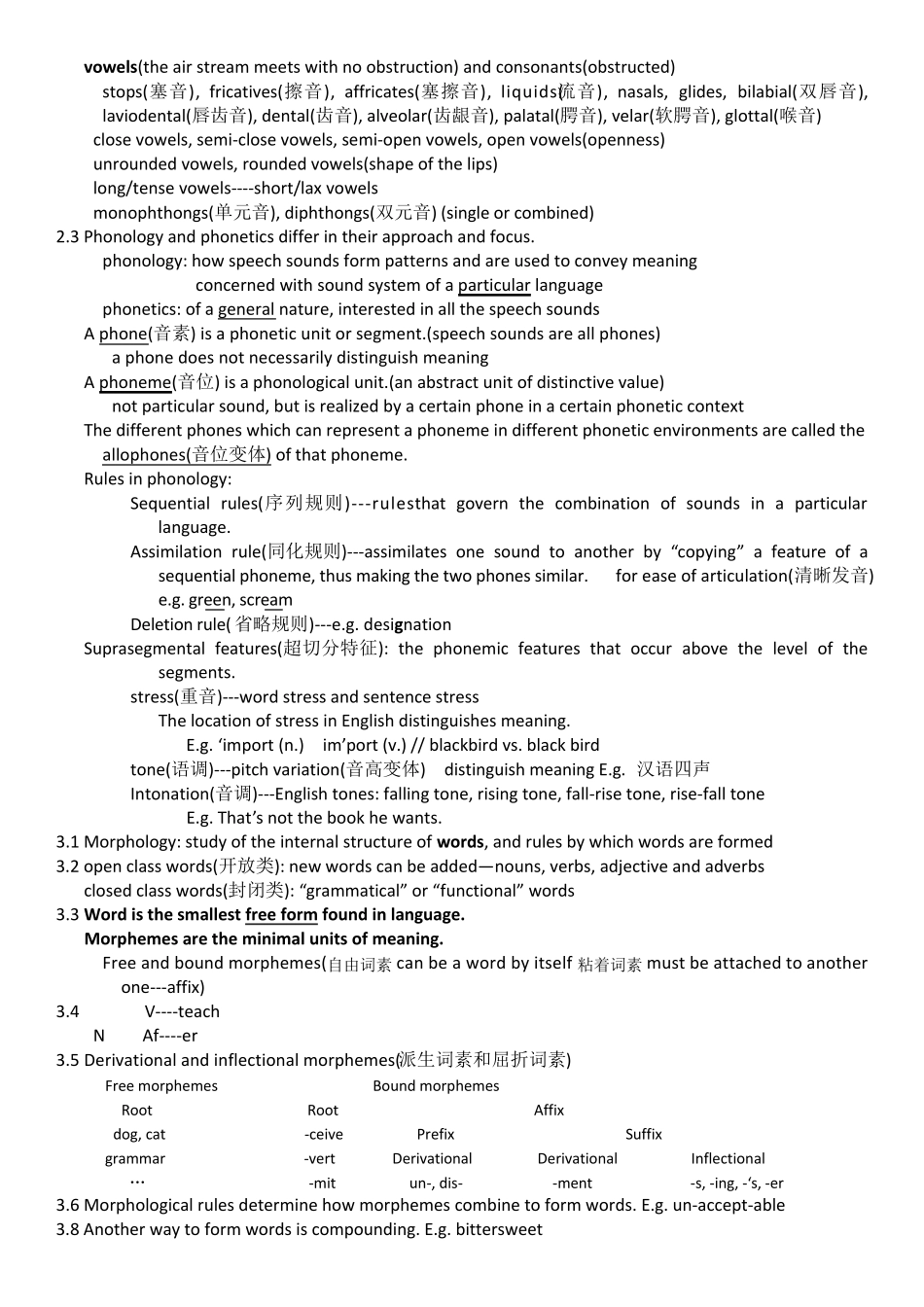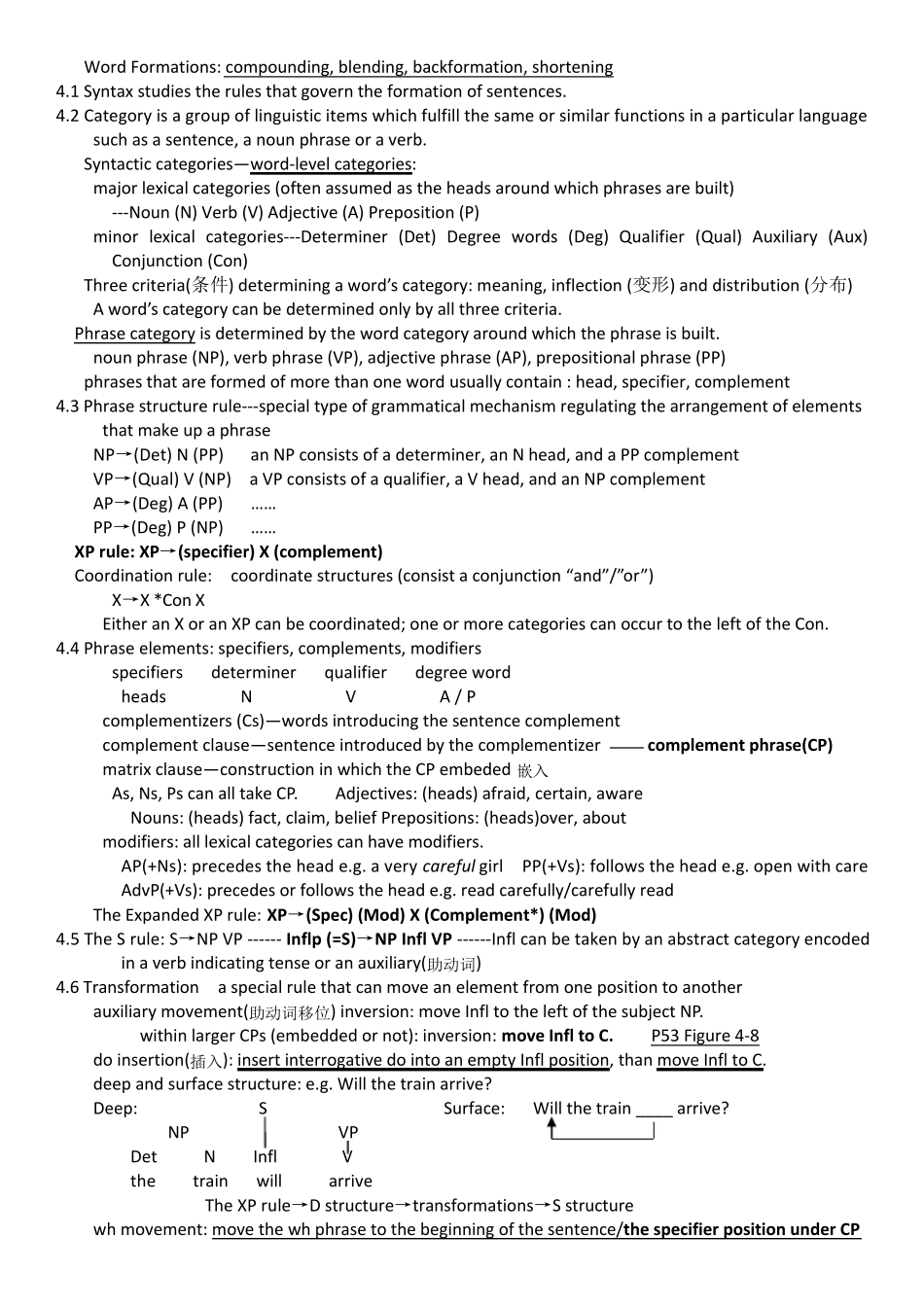1.1 Linguistics is generally defined as the scientific study of language. It is a scientific study because it (a) is based on the systematic investigation of linguistic data. It (b) discovers the nature and rules of the underlying language system. It (c) collects language facts that display some similarities, and generalizations are made about them. The study of language as a whole if often called general linguistics. phonetics(语音学): the study of sounds phonology(音位学): how sounds are put together and used to convey meaning morphology(形态学): how morphemes(词素) are arranged and combined to form words syntax(句法学): the study of rules that govern the combination of words to form grammatically permissible sentences semantics(语义学): the study of meaning pragmatics(语用学): the study of meaning in the context of language use interdisciplinary branches: sociolinguistics(社会语言学), psycholinguistics(心理语言学), applied linguistics(应用语言学) Important distinctions in linguistics prescriptive(规定性 old linguistics) vs. descriptive(描述性 modern linguistics) synchronic(共时性) vs. diachronic(历时性): most linguistic studies are of synchronic descriptions, which is prior in modern linguistics speech and writing: speech is prior to writing in modern linguistics langue(语言系统abstract linguistic system) and parole(话语/言语realization of langue in actual use): Swiss linguist F. de Saussure----forefather of modern linguistics competence(语言能力ideal user’s knowledge of rules of his language) and performance(语言运用actual realization of this knowledge): American linguist N. Chomsky traditional grammar and modern linguistics: Saussure’s book “Course in General Linguistics” marked the beginning of modern linguistics 1.2 Language is a ...


